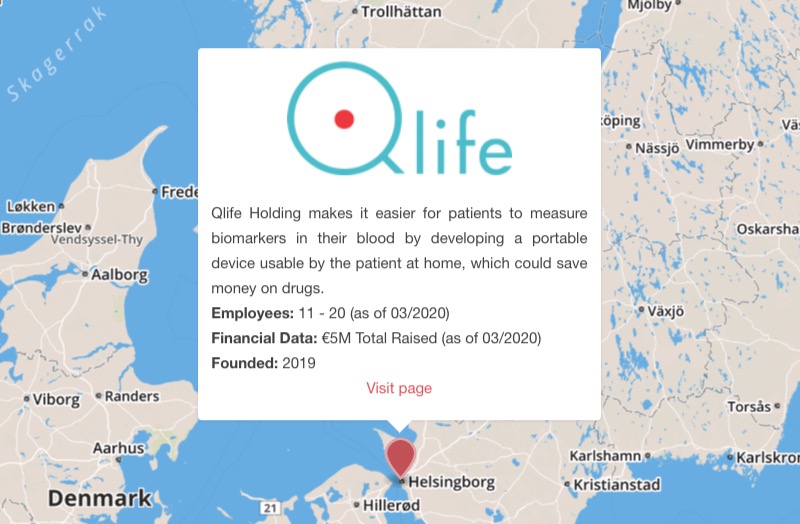Newsletter Signup - Under Article / In Page
"*" indicates required fields
The Swedish medical device startup Qlife is developing a diagnostic kit that patients can use at home to better control chronic diseases.
 Mission: To make convenient diagnostics for patients with a home-use kit that they can use to monitor blood biomarkers in chronic conditions such as arthritis.
Mission: To make convenient diagnostics for patients with a home-use kit that they can use to monitor blood biomarkers in chronic conditions such as arthritis.
Chronic disorders such as cardiovascular disease and diabetes are increasing in prevalence in developed countries, partly due to people living longer. In many cases, monitoring key disease biomarkers with a blood test is crucial for minimizing symptoms. However, the monitoring process can be inconvenient for patients and time- and labor-intensive for healthcare systems.
Qlife was founded by serial entrepreneur Thomas Warthoe, his microbiologist brother Peter Warthoe, and two other executives in 2019. The company aims to alleviate healthcare pressure by developing a blood test kit designed for patients to use at home, which could help patients stick to their medication regime and reduce the workload of healthcare professionals.
“Most of these blood tests are routine – and what is more scalable than having people do the test themselves?” Thomas Warthoe, Qlife’s CEO, told me.
The company’s technology — called the Egoo System — includes an optical blood analyzer about the size of a coffee mug. The user takes a pin-prick of blood and inserts it into a single-use cartridge. The cartridge is then plugged into the analyzer, which detects a specific biomarker determined by the type of cartridge. Results are then sent to medical professionals via smartphone.
“The data we deliver is on-par with what comes out of a central lab,” Warthoe said. “In the long run we expect to provide certain prognoses by combining the clinical data we collect with powerful artificial intelligence tools.”
At present, the device has been approved by the EMA for professional users in detecting two biomarkers: hemoglobin for monitoring iron deficiency in conditions such as pregnancy, and C-Reactive Protein for a range of conditions such as arthritis and cardiovascular disease. Qlife aims to gain approval for home-use testing for the same biomarkers by late 2020. The price of the device subscription will be €25 per month, including test cartridges for one type of biomarker.

The company is also developing the device to measure a host of other biomarkers, including glycated hemoglobin, which is used for monitoring diabetes.
To fund the development of the device, Qlife raised €5.2M (SEK 55M) in an IPO on Nasdaq Stockholm last month and started trading this week.
What we think:
By giving patients a tool to monitor blood disease biomarkers, Qlife could save a lot of time and costs that would normally be devoted to testing on hospital or lab premises.
There are already several diagnostic kits that patients can use at home to monitor specific disease biomarkers such as blood glucose monitors for diabetics. However, Warthoe told me that the Egoo System could be the first to measure a range of biomarkers for different diseases at home.
“I am talking about a versatile platform that can measure many immune, metabolism and even DNA or RNA biomarkers,” he said.
One common concern with sending patient data to healthcare systems over the internet is patient privacy and data security. Warthoe told me that the company formed an agreement with the Danish state and the rest of the EU to ensure patient data is safe and private when using this technology.
A big movement in chronic disease is personalized medicine, which could tailor medication dosage to patients’ different lifestyles and genomics. With DIY diagnostic kits, this move to a more personalized approach could become much easier. For example, the kit could one day be used to measure blood levels of specific medication to check if a drug is working.
“The fact that people are involved in their own monitoring also provides significant positive health effects,” Warthoe said. “The side effect is that there will be less pressure on healthcare systems as people take more control over their own disease.”
Images from Shutterstock






